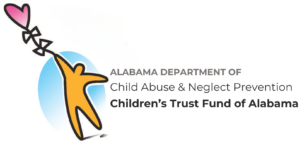 Denial can be experienced by anyone. It arises from events or circumstances that make people feel that their sense of control is threatened. However, those who suffer from addiction are far more susceptible to denial due to the brutal, invasive nature of drug and alcohol addiction.
Denial can be experienced by anyone. It arises from events or circumstances that make people feel that their sense of control is threatened. However, those who suffer from addiction are far more susceptible to denial due to the brutal, invasive nature of drug and alcohol addiction.
Sometimes, denial is evident through bits of anger and extreme emotion. On the other hand, it can also be far more subtle, to the point where the person who is in denial honestly does not realize it. Although it is a normal reaction to circumstances that are out of our control, denial can serve as a major roadblock to recovery.
Why Denial Happens Suppressed Emotions
Some people have a more difficult time than others when it comes to identifying and expressing emotions, especially when the emotions are painful. However, by suppressing emotions, individuals are failing to recognize the truth behind their thoughts, actions, and behaviors. As a result, denial occurs. A person may claim that he or she doesn’t feel these negative emotions in order to avoid the pain that comes from it.
Whether it is physical or emotional trauma, the loss of a loved one, or fear of circumstances, suppressing emotions is not a healthy way to cope. A person who is suppressing their emotions may try to stay busy to avoid feeling or reach for an outside fix, such as drugs, alcohol, sex, shopping, or compulsive eating. Whatever the case may be, suppressing emotions can lead to a state of denial, which can result in more serious issues further down the line.[1]
Threatened Emotional Security
Anxiety, fear, and insecurity can all provoke denial. As a natural human instinct, people try to protect their emotional security. Sometimes, when an event threatens people or scares them, these emotions can be shoved to the side as a coping mechanism. Without even realizing it, people can fall into denial due to a natural protection mechanism.
Loss of Control
Losing control over drug or alcohol use is a major indicator of addiction. However, many people who are suffering from addiction often live in the delusion that they still have control over how much they drink or use. Individuals may be fearful of how their friends and family will think of them if they learn of their addiction, leading them to deny that they have lost control.
In addition, if drugs or alcohol have been abused since a young age, a person may have no other way to cope. As a result, there is a fear of what life will look like without their substance of choice. Denial then sets it as a coping mechanism, telling a person that they still have control.
Stigmatization of Addiction
Even though addiction is formally classified as a chronic, relapsing brain disorder and a mental illness, there is still a stigma that surrounds addiction.[2] Some people believe that addiction is a choice, while others believe it is due to a lack of morals. Unfortunately, these ideas provoke stigmatizing language, such as:

“Why don’t you just stop? I can. Why can’t you?”
“You would think she would stop for her kids if she really loved them.”
Words are powerful. Consequently, these preconceived ideas about addiction have the ability to deter those who are suffering away from admitting their problem and seeking help. A person may begin believing that there is something wrong with his or her behaviors, leading an individual to try and fix it on their own. Instead of acknowledging and seeking help for a problem that cannot be controlled alone, stigma drives some people to suffer in silence.
Signs that an Addicted Loved One is in Denial
Denial is an attempt to cope, rationalize, or excuse behaviors in one way or another. It refers to failing to acknowledge an unacceptable emotion or truth. Denial can sometimes seem irrational, but it is used as a defense mechanism against situations or circumstances that are painful and overwhelming.
While it can be difficult for a person suffering from addiction to recognize that they are in denial, family members and loved ones can usually detect denial from a mile away. Some signs that an addicted loved one is in denial include:
- Avoiding talking about the issue or dodging subjects rather than facing a problem head-on.
- Comparing one’s own behaviors to somebody else to try and prove that there isn’t a problem. For example, pointing out that a friend has gotten a DUI but your loved one hasn’t, so they aren’t as bad as others.
- Making unrealistic promises, such as, “I’m cutting back on drinking” or “I’ll get help soon.”
- Ignoring the concern and advice from family and friends.
- When confronted about their drug use, a loved one denies the problem completely. He or she may become defensive, aggressive, or emotional.
- Rationalizing behaviors, by saying things such as “I only drink when I am stressed out” or “I can’t sleep unless I take that pill and I need to wake up early tomorrow.”
- Blaming others for one’s own problems.
- Claiming that one’s drug or alcohol use doesn’t affect anybody else.
Damage Caused by Denial
As a defense mechanism, denial is a normal reaction to stressful situations. After all, denial gives the mind time to unconsciously take in shocking or distressful information without sending people into shock. [3] However, when a person stays in denial, it can be unhealthy. If denial persists, it can prevent a person from taking action to deal with his or her problems.
Addiction is a particularly dangerous concept for someone to be in denial about. A person who denies that they have a problem will be reluctant to seek help. As a result, this can prolong his or her addiction until he or she faces serious consequences. Unfortunately, addiction kills and refusing to get help can turn into a death sentence.
Denial also hurts the family and loved ones of an addict in denial. The family may obsessively try to make the addict find help, then become hurt when their loved one becomes defensive. Like an addiction, the act of being in denial hurts not only the person suffering but the entire family as well.
How to Intervene
Helping a loved one move past denial is a difficult task. It can be extremely frustrating to watch a loved one continue to harm themselves without realizing the severity of their addiction. However, there are ways to intervene and help a loved one recognize the truth.
When confronting a loved one, it is important to focus on expressing your concern in an honest and caring manner. If you know someone who has achieved sobriety, it may be ideal to invite them to help you speak with your loved one. After all, they will understand what this person is going through and will be a living example that recovery is possible.
While speaking to your loved one, it is important to be specific. Let him or her know exactly how specific situations have made you feel. Let him or her know exactly what your fears and concerns are. Instead of placing blame on your loved one, use “I” statements, such as “I feel like” or “I am worried that…” Then, you can bring up the things that your loved one cares about the most, or consequences this person has faced in the past. Use your own emotions and insight to try and show this person just how serious the problem is. Lastly, be prepared to offer your loved one support by being prepared with recovery resources.
Unfortunately, denial is a symptom of the disease of addiction. Therefore, even after confronting your loved one, he or she may still be in denial. If this is the case, don’t take it personally. Know that you have done what you can do and understand that maybe this person isn’t ready to stop just yet.
In the meantime, you can continue to let your loved one know that you will be there when he or she is ready for help. You can be prepared with a list of local NA or AA meetings, the contact of a nearby treatment center, or a counselor who specializes in addictions. Additionally, you can uphold firm boundaries and be careful not to enable your loved one’s addiction. If he or she is not being enabled, your loved one may begin to feel the depth and weight of their circumstances, causing him or her to reach out for help.
References:









